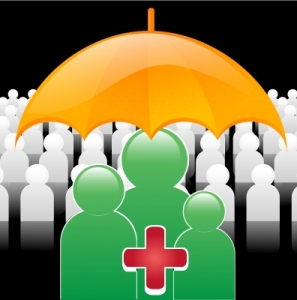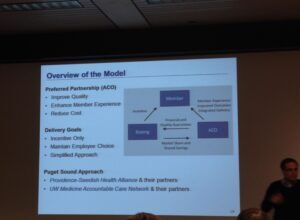
Am I covered?
Kaiser Health News published an informative Q&A today, posing and answering three common questions about the practical aspects of health insurance. I’ve been working in healthcare for 20 years but I still like to read these pieces. Often the answers to the simple questions are not so simple, and sometimes I learn something new.
One of the questions caught my eye:
Q: I have insurance coverage through the health law’s marketplace. When I visited a cancer clinic for a routine blood check, I asked upfront three times (first over the phone and again when I was there) if all services would be in-network. The answer was “yes” each time. Afterward I received a bill from an out-of-network lab for $570. Is there anything I could have done to avoid this charge?
The column answered that theoretically the patient should be able to find out where the blood work is being sent and check if it’s in network, but realistically that’s a lot to ask.
From where I sit I think it’s unreasonable to expect the patient to have to do so. At a minimum I would complain to the clinic and would also considering leaving feedback on a ratings site to let others know.
But I also want to draw attention to the last part of the reply:
“In the meantime, check with your insurer… It’s not unusual for providers to bill patients for services that are ultimately covered by their plan.”
That’s a very important point, and fits with my own experience. Providers will typically bill the insurance company and if they get turned down or not fully paid they send the bill to the patient. This process can take a while, and that sometimes means the provider is sending a statement, not a bill, by the time everything is settled. When I see a balance for $176.45 that’s 60 days old –as I did recently on a provider statement– what does it really mean?
Here are a couple recent examples from my experience:
- A dentist sent a bill for my dependents, which had been rejected by the insurance due to lack of eligibility. I called the insurance company, which assured me coverage was in place. Eventually it was re-billed and went through. The same thing happened at the same office for another family member, and it was also corrected after I inquired. I never figured out who made the mistake or what exactly occurred between the office and the insurer.
- A dependent needed frequent eye exams due to a drug treatment he was undergoing. The first visit was paid but then other visits were denied. Some time passed before I received the bills and figured out insurance wasn’t paying. I called the ophthalmologist’s office and was told the visits had been coded as routine eye exams –which have to be a year apart to be covered. When I explained it should not have been coded that way they said it was too late to change it, the insurance company wouldn’t go back and fix it, and oh by the way if I paid over the phone they’d knock 50% off what I owed! Rather than accept that deal I called my insurance company and they took care of it within a week
A friend told me she is consistently billed for co-pays that she has paid at the time of the visit, but because it’s such a hassle to document her payments and to work to get them reversed, she just drops it. Although I pay all my co-pays at the time of service and have not had this trouble, I told her about other people I know who refuse to pay any co-pays at the time of service –for fear of this exact problem– and instead wait for the bills to come in the mail.
Bottom line: Don’t let the provider be the one to tell you you’re not covered. If you think you may be covered, call your health plan. Often it works out.
Image courtesy of digitalart at FreeDigitalPhotos.net
—
By healthcare business consultant David E. Williams, president of Health Business Group.
![]()







